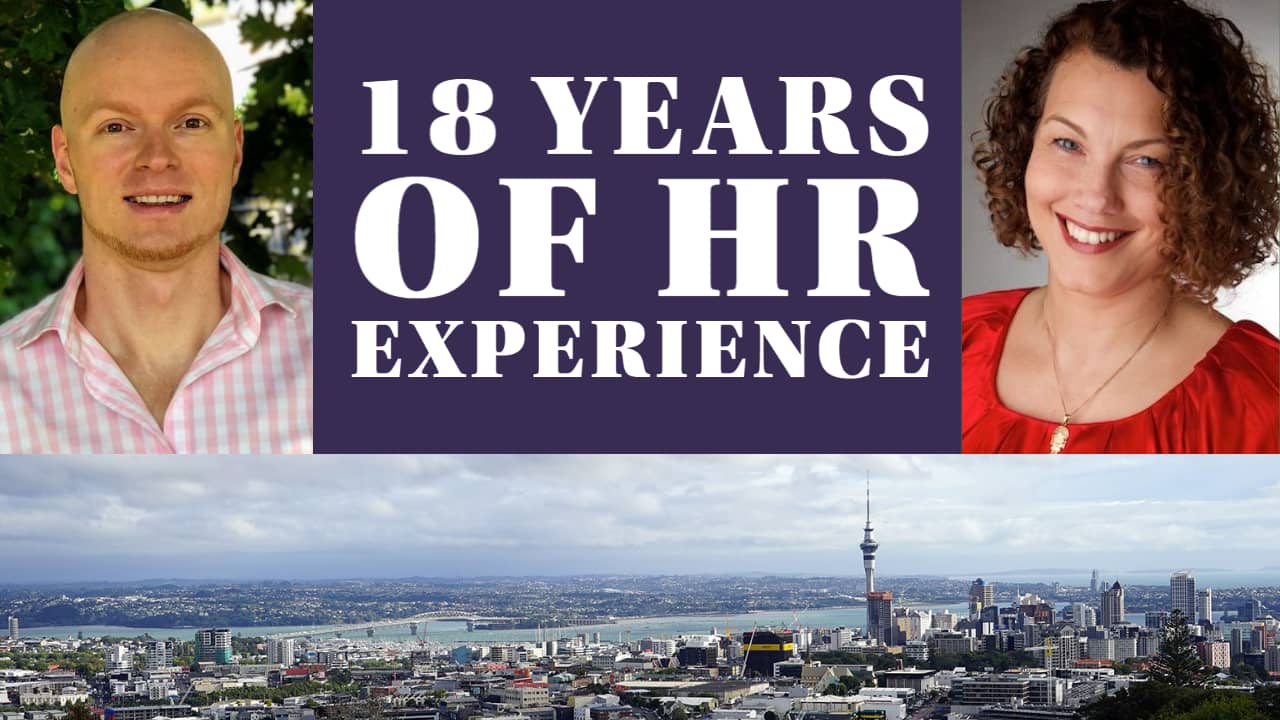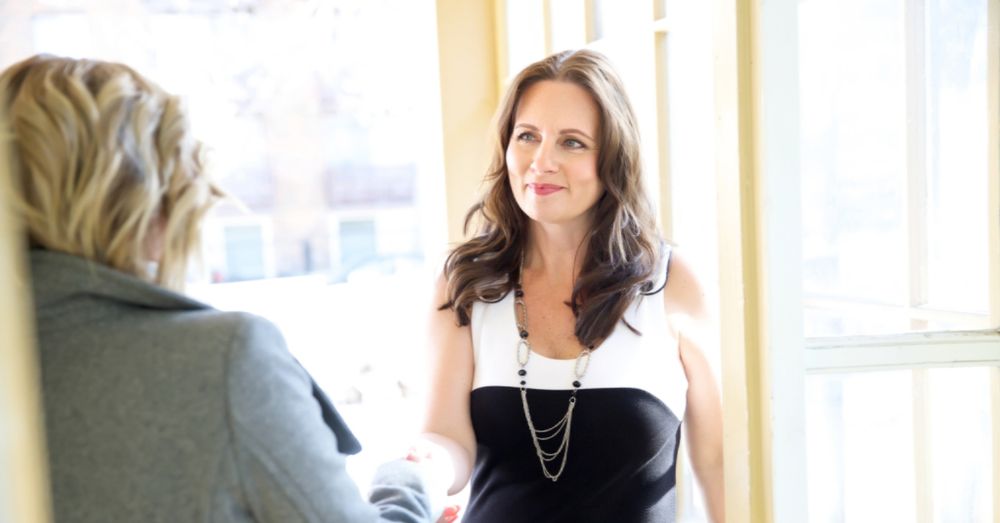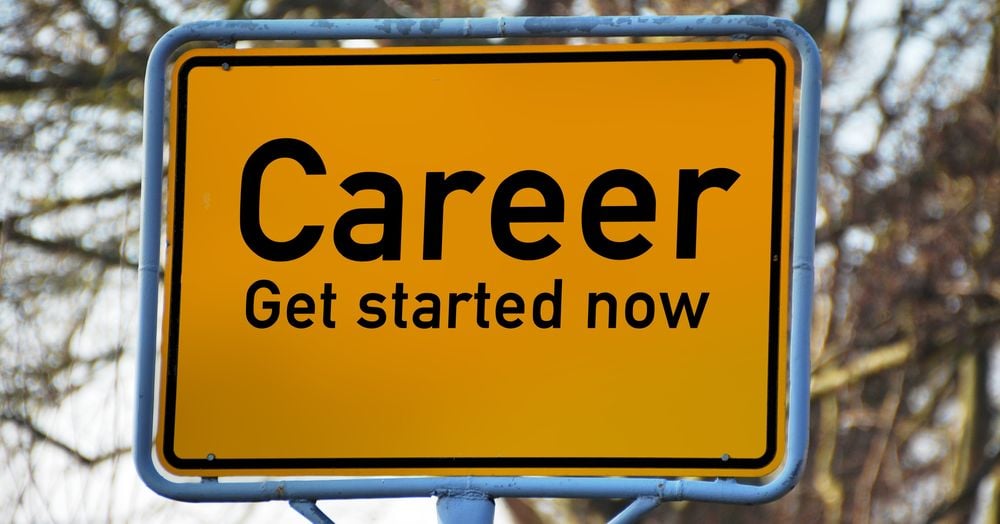
Top 5 Recruiting Mistakes by NZ Import & Export Businesses
27-minute read (46-minute watch)
You’ll learn:
- Is it worth to have a recruiting agency and how much do they charge
- What is the difference between “passive” and “active” candidates and how you can use that
- How you can grab the attention of applicants in your ad
- Why it is so important to gather critical information about a candidate upfront
- Is it good or bad to advertise the exact salary
- Why it is a good idea to have somebody to assist you in the interviews with candidates
- How to improve your interview skills and have “structured interviews” with candidates
- Is there a pay gap between males and females in New Zealand
Watch full YouTube episode below
Max: Hello, my guest is Tania Howard, who is the director of Talent Seed, an alternative recruitment company that makes recruitment skills accessible to small and medium-sized businesses.
Talent Seed provides on-demand hiring experience and outsourced DIY recruitment.
She’s been in the recruitment service for over 18 years across eight countries and multiple industries.
Tania, what do you think is the first one you would like to start with?
#1. NOT KNOWING THE EMPLOYMENT MARKET
Tania: The first one is small businesses often don’t know the market, so they just kind of throw the net out and they actually a little bit oblivious to what’s on the market.
An example of that is not knowing if there is a surplus of candidates or if there is a shortage of candidates.
And the thing is your approach should change completely if you’re going to have mass applications or if you’re going to get a handful.
So, therefore, they’re going with an old-fashioned approach and end up finding the candidate that just doesn’t match the current market.
And to give you a more precise idea. Currently, the unemployment rate is 4,5%. Now, there’ll be some industries where it’s substantially worse than that. So, if you’re in one of those industries, you need to change your approach.
And the way you set up applications will be totally different. If you’re going to go through a handful of CVs, you just ask them to e-mail them to you.
But if you are going to get a hundred applicants, you need a system, that’s going to tell you, which ones you should read, and which ones you don’t even bother reading.
There are lots of systems out there, the one I use most often is one called Haystack.jobs.
And I set up a little questionnaire, the questionnaire has things like “Are you legally entitled to work in New Zealand?”, “Do you have any health issues that could impact on your ability to perform the role?”, “Do you have a criminal history or anything pending?’ And immediately it might call out some candidates.
So you can make exactly the same questions for skills. For example, if you are looking for a welder.
I put “Do you have your welding 2980 certificate, yes or no?”. Some applications don’t have it. So you can completely tailor them, and they save small business hours of work.
Because often you usually only have to look at about a third of the applicants. So that gets rid off, I hate to say that, “tryhards”, that actually aren’t qualified for your role.
Max: So, with this software systems you are talking about, is it a cloud-based software that anyone can get it, or is it just available to your company?
Tania: No, completely, it’s designed for small businesses. I pay 89 dollars a time plus GST per role on the advertiser. I just go – ok, this is the role I’m advertising for, load it up, here are the questions I want to ask, 89 dollars – simple as that.
It’s effortless for some businesses, and they will eventually save dollars just in the hours of work they haven’t had to do because the systems help them cull the candidates.
Now I want to say, there’s some caution. We’ve just used such at the moment on the role, we had 105 applications, and we’ve only probably had to look at 30 of them, cause the rest didn’t have what we needed.
But you would never use the system for the role where there is a skill shortage. Because if there’s a skill shortage, you actually want to be easy to do business with. And that relates to recruitment as well.
You would not ask people to jump through hoops if it’s hard to any of them.
This is what I mean about not knowing the market is that you need to tame your approach depending on what the market is.

Max: Yeah, 100%. Is there a way to simplify the process? How do you know what are the questions to ask? How to work out what market are you in?
Tania: What I often do is use SEEK.co.nz and TradeMe.co.nz to find out how much competition is there right now for the job you’re hiring for.
So, for example, you are recruiting for an accountants person, the accountants payable to make it easy. Search “accountants payable”, how many ads are there right now, in your local area.
And if you’ve got 20 other roles that are immediately in your local area, you know you’ve got a bit of a problem. You can find out pretty easily how much competition there is.
Max: Are there any statistics, or any website, any other resource that small businesses can use to navigate themselves in the market and see what’s out there?
Tania: Yeah, I’m listed on SEEK.co.nz , and I see many updates on the market. One I saw just earlier today said that ads this year, job advertising has risen by 4,4%.
There are 4,4% more jobs out there. Everyone is facing a bit more competition right now. The 4,5% unemployment, this competition for almost anything, if you know what I mean.
But there are some roles, where I think small businesses sometimes don’t realise to looking for what we call a “purple squirrel”, which means a person doesn’t exist.
They might need to compromise, and they’re oblivious to that, so they don’t waste a month looking for someone who’s not even out there.
Max: Say, you were talking about, as an example, accountants payable. How can I engage the demand? Say, if I would get 20 CVs, is it too many, or a 100 is too many? What’s from your experience is the number?
Tania: You actually can’t put a number on it, because roles vary so massively. Like, if you’re doing a call-centre role, you’ll genuinely get more than a hundred.
If you do anything like customer services, accounts – you’re well ensured to have over a hundred. If you’re doing retail, customer service type roles – you’ll probably still get about 50 or 60.
If you’re looking for a tradesperson right now – you’ll be lucky to get 10. So, I mean most people do know. It’s like if you are tradie – they know that there’s a shortage.
It’s when hiring general role that they are often oblivious, and they are a little bit oblivious to what’s happening. I mean, it does worth speaking to someone like me, you get a bit of this feeling for what’s happening out there at the moment.
The problem small businesses have is when they use a regular recruitment agent, he or she probably didn’t answer straight away. But most of them can’t afford them, because they charge such an exorbitant fee.
Max: How much are they charging? What’s the market rate for a general role, how much do they charge on average?
Tania: Most of them charge about 12 to 15%. Let’s say you’re doing a $50 000-role, and I charged 15% – this is $7500 fee on a $50 000 role if you reach for a recruitment agency.
And that’s why small businesses don’t use them. It’s a huge commitment, which is why they try the DIY, which is fantastic.
But there are things they have to put in place. As you said, there are the cloud systems that can help you out.
Some of those cloud-based systems have some questions already in there, culling questions, like “Do you have a criminal history?”, “Do you have any health issues?”. So you actually don’t need to come up with them from scratch.

#2. NOT BEING CANDIDATE CENTRIC
Tania: The second mistake I see a lot of small and medium businesses do is not being candidates centric. What I mean by this: candidate-centric means that the focus is on the candidate, not what you want as a business.
Now I know, when you’re hiring, it’s tempting to say “I want this and I want that, and for them to be successful, they have to have this”. But the reality is, employing market has the 4,5% unemployment.
The candidates currently have the power, not businesses. I find that businesses are still putting adverts up, that sound like a shopping list exactly, but I just see it.
“We are hiring” – so what? Seriously. In this market. And they put ads up and go “For you to be successful in this role, you must have …” And I’m like – there’s no attractiveness at all to the candidate.
And in a given time, there are only about 20% of people are actually looking for jobs, the rest 80% aren’t. And unemployment market is 4,5%.
You really need to focus on what we call “passive candidates”, where they’re not actively looking, but they browse as though the people who go to shopping and still come out having purchased something; they were browsing, they didn’t necessarily go actually to buy something.
They might have had a bad day at work; they might just be browsing through SEEK.co.nz or TradeMe.co.nz . And if they saw something that really grabbed them, they’d be interested, right?
But, the problem is with most recruitment ads, the very first thing that businesses talk about is themselves. And I don’t know; maybe I should use yourself as an example.
Let’s say you were putting the recruitment ad up and you might start talking about Easy Freight, and you might start saying “We’ve got the team, we have really high standards of customer services”.
All the candidates see when they see this job, is a blurb about you. And you’ve got to flip it on that’s hidden.
You’ve got to have them, the first thing they read is why they would want that role, what’s in it for them, what benefits are in there for them. And they don’t need to know who it’s for until later on.
Max: What’s an example of a good ad? What’s a good start, like a paragraph or a sentence, to catch their attention.
Tania: We normally use the words “you” or “you’ll”, so that we’re talking directly at them. It might be “you’re an experienced freight forwarder who would love to work in a small team dedicated to excellent customer service”.
That would help them visualise what the role is. The purpose is to help people visualise what the position is. And then “you’re this and you are that”.
You know, I did a role recently, where they were tapping into a market that they knew the people would reach really-really hard, and the benefits of that role – cause you’ve got in there what’s unique about your role and what differentiates it.
You’ve got to get an answer to “Why someone would work for you compared to a competitor?” And if you can’t answer that, then it’s really hard to put kind of a differentiator on the uniqueness and benefits in there.
This particular business had really-really common long hours and a lot of bureaucracy. We were quite straightforward with our approach.
That was like sick of corporate BS, and it literally caused the people that would look to that were the people that were going “yeah, I’m done with the politics and bureaucracy”, and then it was “live to work” not “work to live”.
Things that make people tap into those differentiators and people go “Wow! That sounds really different”, and they might read all. And it’s not until footer down there until they find out who it’s for.

Max: Correct me, if I’m wrong. Some businesses may think that if they display the good qualities of the company – for example, “We have been the highest-rated company in New Zealand, we have the most awards, we’ve been the Top-10 in this, and that” – they are kind of bragging about themselves.
But at the same time, a potential candidate could think “Wow, they are so popular, they’ve been well-regarded by their clients”. Would it actually improve the number of quality applicants? Or is it still going to scare them?
Tania: It’s essential stuff, it’s just that you don’t need to say it first. The reason there if someone is an active candidate and that they are actively looking, they still going to read down the end to find out who did this.
They’ll get to the information that you are highly respected in the industry, and you’ve won all these awards. It’s definitely valuable, but it doesn’t need to be seen first.
If you’re a passive candidate, then you’re not actually looking for the job, you’re just kind of keeping your options open. Then it will not catch you, because you’re not actively looking for A jobs, you’re not actually interested in them right now, you’re interested in what can you get.
It means that by talking about the company first you’re really only talking to those active candidates, which are the minority.
Max: I see. And for those that have just joined us, we are talking about the Top-5 recruitment mistakes that small businesses make, and my guest today is Tania Howard from Talent Seek.
Tania, would you like to move to the mistake number 3, please?
#3. NOT ASSESSING CRITICAL CANDIDATE INFORMATION UPFRONT
Tania: The next mistake is not gathering kind of critical information, kind of early on in the process. What I mean by that is that I find that small businesses tend to receive CVs, look at the CVs and invite people in purely on what they see on their CV.
And there’s nothing more frustrating – kind of advice to small businesses – to have some businesses go and make an offer to someone, just for argument sake, say $65 000, and the person’s bottom line was $80 000.
And I’m like “There’s no way, you should’ve gone through 2 interviews, reference checks and waste all that time and energy to find out they weren’t even on your ballpark”. So, for me, phone screening is absolutely critical.
Once you’ve got CVs, regardless of whether it’s a short supply role as we said before or a surplus of candidates, it’s just to have that, what we call “phone screening” in the industry, to have a short conversation, which finds out what their motivators are, what sort of salary they are looking for, even location.
You know, in Auckland it’s important especially to make sure they don’t live in Albany, and the job is in South Auckland, cause they won’t last long. It’s what we call “red flags” or “short stoppers”, anything that we knew got the offer turned down.
You need to know they are on the first contact, not at the end of the process.
Max: Would you specify all these requirements in the advertisement?
Tania: You do, but we had a job recently, we’re offering $22 an hour, we still got some of them insisting “I want $25 an hour”. So, it doesn’t stop. You kind of often got to go through those sorts of things quite sometimes.
And even I’ll ring people, I’ll ask them, or when they’ve gotten in front of me on an interview, I’ll ask them again.
Because you get people that will tell you that all are fine, because they just want to get in front of you, and then they get in front of you, and the story has changed, you know. It’s kind of good to have multiple touch points with candidates. BONUS TIP. NOT EVALUATING CANDIDATES STRAIGHT AWAY
BONUS TIP. NOT EVALUATING CANDIDATES STRAIGHT AWAY
Max: And how long do you wait before you start assessing? Like, a week, one day?
Tania: Immediately. Actually, this isn’t a mistake in my Top-5 list, but we’re talking about it. It is definitely a mistake. Because in the old days, people would have a closing date and just wait all the application come in, then they start going through them.
Quite frankly, if you wait, you’ll miss the first people. The people that first applied, by the time you get last ones, at 4,5% unemployment rate – first ones are gone.
To me, I’ve got a whole lot of recruiters, we’re all kind of working from home or on-demand. And as soon as the applications come, they start to see them.
Unfortunately, things like shortlists don’t happen much anymore, because it’s just “Do they meet the requirements?”, “Do they meet the skills?”, “Do they have the motivation?”, “Do they have the experience?”
Yes or no? Put them forward. I’ve seen too many people that sit and wait for a comparison, and then they’ve lost their first candidates.
Max: Would you, say, if I’m in a small business, would you handle it on my behalf? Or how the small business handle this assessment if they’ve got 20 applicants?
Can they ask their own internal staff to do phone calls? Or does it have to be done by someone else?
Tania: No, it doesn’t. I actually offer people templates, which were designed for the role. We’ve got a generic one, but we can also tailor it a little bit for the position.
And they just run through the questions on a sheet. They should capture them as well, because if you speak to 5-6 people, you start mixing them up, even during those phone calls. So you really need to capture what was said.
I type it as I talk. So I speak to them on the phone, and I do some typing of their response as they speak.
It doesn’t need to be all perfectly correct or anything, you just need to get it down, so that when you look through the candidates after you’ve spoken to a few, you remember by each conversation why they are different.
Max: Can you record the phone calls?
Tania: I’m sure you probably can if you’ve got the technology. But you probably also have to be careful about the privacy. I think you would actually have to get permission?
Max: It is just the matter of saying. Now I know, when you call some banks, they ask you “Please be aware, this phone call will be recorded for customer service”.
Can you just warn them without actually asking them for written permission that this is going to be recorded?
Tania: You probably could, but the problem you’ve got there, Max, is that then when you got, say, six people and you’ve got “Oh, maybe they were all good” – you’ve gotta listen to them all, to find out which candidate is which again.
With me, what I do is I type all these notes, and at the end of a phone call, I write just one paragraph that is a summary of what I thought about that person, and how they fit the role or any concerns I might have.
And then all I have to do is to go back actually to one paragraph that draws my memory rather than have to re-listen to an entire conversation. That’s kind of more valuable; it saves you probably more time.
Max: Is there such a thing as the most important part of the information that a small business owner has to display to attract the right candidate?
For example, is it just all about the salary nowadays? Or do you have to be creative with the roles and cast the happiness?
Tania: Every job should have a unique selling proposition. And I go in there, I ask customers, cause I write ads for people, and sometimes it’s all about involvement in the recruitment process, it’s purely just writing an advert, and then they’re doing their own.
But it’s very much tapping into what is truly be the unique selling proposition for this role? Why would someone want this role, compared to a role down the road? What benefits will I have?
How will they learn? What systems would they use? Who would they work alongside? And we just ask a lot of questions and look, a lot of small business owners never thought of it from their perspective before.
We just literally ask those little questions, that makes people think about it, and at the end of it, we generally can come up with the unique selling proposition for the role.
The ad is written from a marketing perspective. This is what people forget, when they’re recruiting. You are marketing, just what you’re marketing is a job. And that’s what you are selling.
At the end of the day, you are selling the job. And people just completely forget. They think “I want this” and “They have to have that”.
It’s like “Yeah, that’s true, but it’s not attractive if that’s your approach”. So, yeah, you’re free to come up with USPs (unique selling points).

Max: What about the salary? Is it best to advertise, say, the exact salary, like $50 000? Or between $45 000 and $55 000?
Tania: So it’s always good to have a band. Because if you advertise, say, $50 000, and you get someone that actually just nearly there, and you might have spent a bit more time helping them kind of get there.
But there’s been no other candidate, and, they’re close, but actually, you’d really rather offer $47 000 because they’re not there yet. If you’ve got an advertisement at $50 000, all of a sudden they’re gonna be “You advertised at $50 000”.
So you always better to offer a band and it depends on their experience. A lot of people in New Zealand – it’s quite interesting in New Zealand, we don’t advertise what we’re actually paying. We don’t advertise it that often.
The crazy thing is ads with salaries on them will get more click-throughs. So more people look at them if you have the salary in there. It’s absolutely a good idea to do so.
But what you must consider is if you’ve got people already in your business, they could possibly say that you don’t want to cause any internal issues. “They just offered $28 an hour, and I’m earning only $25!” Do you know what I mean? There are things to consider and to take into account.
Max: And if you’ve just joined us, my guest today is Tania Howard from Talent Seed. We are talking about the Top-5 recruiting mistakes that small business and medium size businesses make, and probably you do as well.
Make sure you subscribe to our YouTube channel because we have interesting guests every week. Tania, would you like to discuss the mistake number 4?
#4. HAVING A BIAS
Tania: Mistake number 4 – this is just experience with people having a bias when they recruit. And what I mean by this is that, you know, if you’re watching a movie, there is a term that is called “suspending belief”.
What people naturally do, when you watch something that’s quite fantastic or completely off the wall, you have to suspend your belief, when you’re going to that movie to actually be able to enjoy that movie.
Because otherwise, you go “This is what, this is not real life!” Do you know what I mean? You actually have to do that in an interview. And instead of suspending disbelief, you may have to recall it “suspending belief” and “suspending doubt”.
What I find happening is that you get a candidate come in, you take one look at them, and you’re like “Ugh, they are not gonna fit here”.
Bam! It doesn’t matter what they say in the interview after that, somebody has already made a call, and they just can’t get past it.
And the trouble with a bias is most people don’t even know they’ve got a bias, so don’t really know you’ve got it. And I’ll talk about a couple of biases, which are quite commonly talked about.
One is for “Halo effect”, and another one is a “Horn effect”.
The Halo effect to someone that comes in, they look like you, maybe a similar age, maybe even you can tell that you’d probably be friends with them and you enjoy the chat, and you can consider being with them on Friday night at the pub.
Is it called the Halo effect, when you’re like “I really like this person, so, I’m gonna employ them”. Now, the problem is, because you kind of had a chat in a perhaps more relaxed way, just because you’re a nice person and you like them does not make them suitable for the job.
And you get the opposite of that, which is what we call the “Horn effect”, when someone walks in, and they perhaps from a different background from you, from maybe different race or something that you haven’t had much exposure to, or you’ve actually got biases already.
And you just go “Oh, no, they’re not gonna fit here”. I mean, this even happens with age, you might have a really young funky company, that whole lot of 30-year-olds, and then somebody walks in, an applicant that is at the 40s, “Oh, yeah, they’re not going to fit”.
So you shut down, you’re asking them questions, but you’re just not even really giving them a chance.

You have to find a balance of 1) yes, using your intuition, 2) yes, looking at them and going “these are my initial thoughts about that person”, 3) but then you have to put that aside, ask some really good interview questions.
I mean I don’t even want to count how many people I’ve interviewed, it would be thousands. I’ve had countless times when someone has walked in, and you go “Yeah, now we’re talking”.
And then as I go through the interview, they’re not able to provide any proof or evidence of things they’ve done. And at the end of it you realise that actually you really want them to do well, but they just not going to cope up.
And then you have the opposite when someone walks in, and you go “I don’t think you fit, I can’t see myself with you on Friday night”. But they say something, fantastic things that at the end of it you’re like
“Yeah, you know your stuff” or “You’ve got the right attitude”. You know? So, I get a lot of small businesses that say – oh, the one that drives me nuts, Max, is “Oh, we used to have this guy called Richard here, and he was the pain in the bum.
He just reminds me of Richard. Can’t hire him, because he reminds me of Richard”. And you’re like “Seriously?!” Not did he just hold his mouth wrong, it’s just because he has some sort of mannerism perhaps that reminded them of someone else.
He’s a totally different person, and if I have managed to suspend their belief, they could have remained open-minded, and sure they got some evidence and proof, and then they are able to make a more logical decision.
Max: Is it a good idea to have someone else helping you and sitting next to you to do the interview together?
Tania: Yeah, it is. I mean in most small business, unfortunately, they don’t have that luxury, because they are small. But if you do have that luxury, it’s actually an excellent idea.
Because somebody else may know office things that you don’t. Or you’re busy taking notes, and while we’re on this subject – take notes, for the same reason as what we were talking about earlier: you’re talking to a dozen people, they start getting mixed up.
But someone might pick up on something that you just didn’t, or have a slightly different perspective. So, yeah, it’s great if you can do it.
Max: Tania, how common it is and how available it is for small businesses to do one, two, three interviews? Say, the first one is in the office, the second one is in the café.
And I keep hearing, especially in the States, they’ve got some start-ups suggesting to take out their spouses for dinner as well. Is it just a gimmick or is it valuable to go out for dinner?
Tania: The problem we’ve got is we’re in a really candidate-scarce market, 4,5% unemployment. And it’s a really lovely idea, but those things take time.
If you are recruiting for a role, where those candidates also will have multiple other opportunities or actively looking, by the time you organise all that, they’re gone, they’ve moved on, they’ve already had a job offer.
A lot of it depends on the level of the role, and how much competition there is for the position. Now, if you’re doing an interview “the spouse out for dinner”, this is excellent if someone is moving to cities for the role, and the spouse is actually the decision maker as well as the person.
If they’ve got to move across Auckland and change schools and so on, then it’s really important. Or if it’s a really senior role.
You wouldn’t do that for a general role, and you wouldn’t do it for a position, where while you’re doing all that, the candidates are already gone because they’ve had other offers.

#5. POOR INTERVIEWING SKILLS
Max: What about the mistake number 5?
Tania: Number 5. I find that some businesses are particularly good at their interview skills. The reason is this is important, and I’m not sure if they realise that.
But an unstructured interview, which is the café style interview or just sit-down-and-have-a-chat type interview, it only has 30% validity as far as saying there’s only 30% chance that this person in the interview will actually be any good in the job.
Now, there’s a pretty huge failure rate, right? 30% that you can say that person whether he should be good in the job.
So the proper process is what we call “structured interview”, which you would also heard as a behavioural interview. Now, scaringly, that only takes you up to 62% certainty that someone is okay on the job.
That’s pretty high failure rate. But we are human, we insist on talking to people, we insist on eyeballing we want to work with.
No matter, there are other things out there that are more accurate with someone’s ability to perform, but we’re humans, so we wanna see someone. But you’re much better doing a structured behavioural interview.
You know all it means is there be only quality questions. Your questions should be those that made proofs or evidence of things that people have done in the past, not what they would do in the future.
We’re not looking for scenarios; we’re not looking for “in this situation what would you do?” Because any grade or anyone that’s really smart will give you the right answer, and it doesn’t mean that they will act like that.
Your questions should start with either “Tell me about a time …” or “Give me an example of …” and “Give me an example of a time …” And pretty much if they don’t start with those three, they are not behavioural questions.
The other mistake in interview questions I see that small businesses do, you know, “What are your strengths and what are your weaknesses?” These kinds of questions have been around for years, right?
The problem you’ve got is if you’ve got someone that’s got really good self-knowledge, you’ll get good answers. But not everyone has really good self-knowledge.
And if you get a candidate that’s like slightly narcissistic, it’s just rubbish, and you won’t get any decent responses, nothing you can use either. So, yeah, find yourself some behavioural questions.
Max: Do you do this only in person, or do you start doing this interview over the phone?
Tania: We do that partly over the phone as well. Over the phone, what you want to do is you wanna do it shortly in the time to find out who you really want to actually bring in for the interview.
You probably spend 10-20 minutes on the phone, so that you’re not looking at 12 people, you’re only looking at 5 or something, face-to-face.
What we do is we add some behaviour questions in, but we might only do two, just the biggest things about their job, we might ask behaviour questions right in the phone screen, and then the full interview is 80% behaviour questions.
Max: Where do I get the list of these questions, Tania?
Tania: We’ve built interview guides for people, so people can come to us and say “this is what’s important to us”, and again we can help them build the tools, and you will probably Google.
There used to be some really good sites, they seem to disappear, unfortunately, but I’m sure googling or giving me a call, and I give you some questions.
Max: Do you have on your website any free information?
Tania: Yeah, I do actually. From our insight free information we’ve got a check-list, yeah, check-list through recruitment, all the things you must do.
Then we also do have like a PDF on interview questions, but hard to explain, cause questions should be tailored for the job you’re applying for, right? You wouldn’t ask exactly the same questions for every job.
I had an old client years ago, I gave him a whole lot of questions for an accounts person, and he wanted to use them when he hired a salesperson.
I’m like “No, they’re completely different questions, you’re going to hire an accounts person with these questions”.

Tania: I do have like a guideline, which is to help you develop your questions. But the thing to go back to is to look at values and behaviours of someone that you want to do business.
And then you build questions that start with “Tell me about a time …” or “Give me an example of …” a time, that they have actually done that behaviour or live that value, without actually naming the value.
I know this is going to sound weird, but let’s just say, a common thing that we ask for in New Zealand is for adaptability, you want people to be adaptable.
You could say “Tell me about a time …” but we don’t wanna say “that you’ve been adaptable”, because that’s what we call “a leading question”, and they know what the question is about.
You have to ask them a question without that word. So what we do, the question we’ve been asking instead is “Tell me about a time, where your day has turned into a catastrophe, what did you do?”
Then you’re going to see their adaptability, without having told them, what that’s all about.
Max: Tania, we’ve got a question from Alex. Alex is asking “Do you think there is a big pay gap between males and females in New Zealand? And has it gone better within the last ten years?”
Tania: I very rarely see that pay gap. I thought when you see the pay gap it’s mainly in the big corporates. I mean it’s a difficult one.
Because if, say, somebody comes to me for a job, and I say to them “What are you earning at the moment? What do you want to earn in your new job? What’s your bottom line?” and we ask all that sort of questions. You know.
I might have one candidate that’s a male, and one candidate a female. And the reality is that females will sometimes have slightly lower expectations, or they just don’t push themselves as much.
Females frequently don’t apply for roles if they can’t take off everything on the add, they often just don’t even apply. When males, the behaviour is “I’ve got 80% of that, it’s alright!”
It’s an awkward one because supposedly it’s out there, you see in the papers all the time, people say it’s there, but it’s a really hard thing to get evidence of unless probably you are a big corporate, and you’ve got access to everybody’s pay.
You know what I mean? I mean there’s obviously things like nursing and home help, and teaching and things where there are a lot more females may have kept overall salaries down, but I think a lot of it what fixed the statistics that you see out in the field.
Max: And another thought that I had is that we like to believe that everyone is unique, everyone is special, but for some reason, everyone has to have a very similar salary.
The two things just don’t add up, like if everyone is unique, everyone has their own set of skills, and everyone has their own experience, backgrounds – you can’t just put everyone in the same box.
It’s very hard to find statistics and relevant data to work out whether … but somehow the government and other statisticians did manage to find. I think there was a recent news article, that there is at least 10% pay gap or 15% pay gap.

Tania: I’d love to see some statistics. We keep on getting told it’s there, but no one really gives you the breakdown, but I do think men sell better themselves.
You know, women will go in, and they’ll go “Oh, yeah, $85 000 would be fine”, and you get a guy with exactly the same ability that goes with a 100k. So, yeah, it doesn’t help.
I’ve got friend years and years ago, so many years ago, you can tell by the salary I’m about to tell you. She was on the cash of $36 000 at the time. And in the day when you got payslips put your desk.
And she just picked up the payslip, didn’t even look at the name, because it was at her desk, opens it up – “$50 000?! I get a pay rise, nobody told me about that”.
And then looked at the name, and “Oh, my God, I opened my colleague’s payslip”. And he was exactly the same position as her, and he was earning nearly 15% more. So there are things like that happen.
Max: In recruitment obviously you have to judge each candidate on their own merits, right?
Tania: That’s exactly it. I mean, as you see it if someone’s got a certain skill, all you can do is offer to pay them judged on what you believe their skills will be.
Perhaps there’s a bias out there, where people devalue a woman a little bit more, but neither say it. I mean I’ve never ever in my 18 years of recruitment said I’m going to pay the person less because she’s a woman.
It’s probably in cities if it is there, and people don’t do it purposely, but yeah, wouldn’t be great to see some more stats.
Max: We’ve discussed five mistakes that small businesses make, and how does your company help, what do you do in particular?
Tania: We do three things. We build self-recruitment kits for people; these kits have everything they need, the questions, the process and all of that, so they can just go and do the recruitment themselves.
We also do outsource recruitment, where we act as the outsource recruitment company, and we do the recruitment on their behalf.
That means processing the applications, which come through, coming up with the short list of candidates, doing their reference check – doing everything for them remotely.
And we don’t charge by placement, we charge by the time taken, and it’s a lot more cost effective for small businesses because it cost about a third of what an agency would cost. It’s just like having your own on-demand recruiter, when you need us.
Max: And what’s the best way to contact you? Is it just the website? Maybe you have an email?
Tania: Just go to talentseed.co.nz , pretty easy or either email me at tania@talentseed.co.nz , phone numbers is 0272892168
Max: Awesome. Thanks for your knowledge, Tania, it was very interesting, and if people have any other questions, they can leave their comments now on YouTube, and we’ll address it .
And thank you, Tania, hope, we will see you again. And all the best in your small business growth.
Tania: Thanks very much, Max.

We’d love to answer any of your questions! Contact us now
P.S. Do you know of other people that will find this article useful? Please share it on social media. Thank you!
